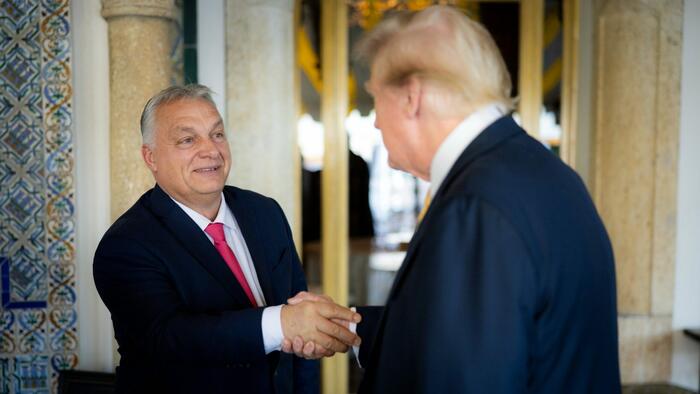Hungarian Prime Minister Viktor Orban’s recent proposition for a Christmas truce between Ukraine and Russia has sparked significant discourse, particularly following its rejection by Ukrainian President Volodymyr Zelensky. Orban expressed his discontent over Zelensky’s dismissal of the ceasefire proposal and a potential large-scale prisoner exchange, stating he had made concerted efforts for peace at the end of Hungary’s EU Presidency. His disappointment was articulated in a post on social media platform X, where he lamented that Zelensky had ruled out the possibility of dialogue around peace efforts. Orban’s readiness to engage in discussions has drawn attention, especially considering the broader geopolitical climate surrounding the ongoing conflict.
The interaction between the two leaders took a contentious tone when Zelensky indirectly criticized Orban, implying a lack of seriousness in his diplomatic engagements with Russian President Vladimir Putin. Zelensky’s remark alluded to past discussions where Orban sought insights from other controversial figures, raising questions about the credibility and motivations behind his diplomatic overtures. He emphasized the importance of Ukrainian agency in any negotiations concerning the conflict, reiterating that discussions about the war cannot proceed without Ukraine’s involvement. This stance underscores the ongoing insistence on Ukrainian sovereignty and the need for its voice to be central in peace negotiations.
In his communication with Putin, Orban reiterated Hungary’s commitment to pursuing diplomatic avenues for a ceasefire. He framed his mission as one directed toward advocating for peaceful solutions, branding his calls as essential amid a backdrop of heightened tensions and unresolved military engagements. However, the Kremlin’s portrayal of the conversation suggests a different narrative, with Putin accusing Ukraine of obstructing diplomatic efforts. This divergence in perspectives highlights the complexity and challenges inherent in brokering peace amidst a conflict marked by deep mistrust and competing narratives.
Orban’s position as one of the few NATO leaders willing to maintain an open line of communication with Moscow has elicited mixed reactions within the European Union. While some view his approach as pragmatic, aiming to de-escalate tensions and promote dialogue, others criticize it as undermining collective EU efforts to present a unified front against Russia’s actions in Ukraine. The differing views on Orban’s strategy reflect the broader ideological divides within Europe regarding how to handle relations with Russia and the ongoing war.
The backdrop against which these developments are occurring is fraught with challenges, including the continuous military conflict in Ukraine and its significant implications for regional and global stability. As the winter approaches, the prospect of a Christmas truce took on added significance, as a pause in hostilities could alleviate some immediate humanitarian conditions faced by civilians. However, the rejection of Orban’s proposal serves to illustrate the entrenched positions held by both Ukraine and Russia, with each side maintaining firm ground on their respective principles and objectives.
Overall, Orban’s initiative to propose a ceasefire and prisoner exchange symbolizes the strained efforts for peace amid a protracted conflict. The exchange of communication between Orban and Zelensky reveals the deep divisions within the international community regarding the pathway to negotiation and resolution. While Hungary’s Prime Minister continues to advocate for dialogue with Russia, the response from Ukraine underscores the nation’s prioritization of sovereignty and agency in negotiating terms of peace. The interplay of these diplomatic engagements emphasizes the relevance of sustained dialogue while also bringing to light the obstacles that impede progress in seeking a resolution to the ongoing conflict.

